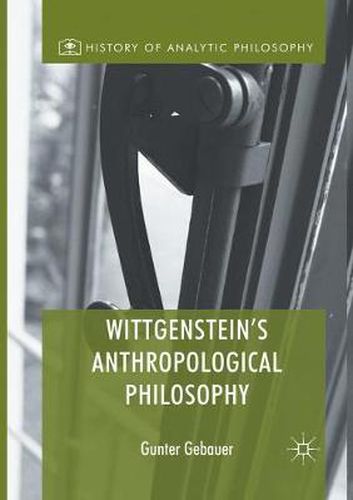Readings Newsletter
Become a Readings Member to make your shopping experience even easier.
Sign in or sign up for free!
You’re not far away from qualifying for FREE standard shipping within Australia
You’ve qualified for FREE standard shipping within Australia
The cart is loading…






This book explores how Wittgenstein’s personal life provided more of a reference point for his philosophical work than has been previously thought. Focusing on two key phases in Wittgenstein’s life during which he dramatically changed his philosophical orientation and reinvented both his intellectual methods and himself, the author presents and alternative understanding of Wittgenstein and his work. The book firstly addresses the period of his anthropological turn (1929-1932), in which Wittgenstein developed one of his central arguments concerning the role of the body in the acquisition of language and the rules of social practice. The second key phase, commencing after the end of the Second World War, was one of introspection, during which Wittgenstein became intensely preoccupied by inner events, sensations, and his own personality. As his work evolved, the anthropological aspects became the primary focus of his work by the end of his life. Providing an accessible and novel insight into Wittgenstein’s work and his interest in ‘continental’ philosophy, this translation will appeal to a wide audience.
$9.00 standard shipping within Australia
FREE standard shipping within Australia for orders over $100.00
Express & International shipping calculated at checkout
This book explores how Wittgenstein’s personal life provided more of a reference point for his philosophical work than has been previously thought. Focusing on two key phases in Wittgenstein’s life during which he dramatically changed his philosophical orientation and reinvented both his intellectual methods and himself, the author presents and alternative understanding of Wittgenstein and his work. The book firstly addresses the period of his anthropological turn (1929-1932), in which Wittgenstein developed one of his central arguments concerning the role of the body in the acquisition of language and the rules of social practice. The second key phase, commencing after the end of the Second World War, was one of introspection, during which Wittgenstein became intensely preoccupied by inner events, sensations, and his own personality. As his work evolved, the anthropological aspects became the primary focus of his work by the end of his life. Providing an accessible and novel insight into Wittgenstein’s work and his interest in ‘continental’ philosophy, this translation will appeal to a wide audience.